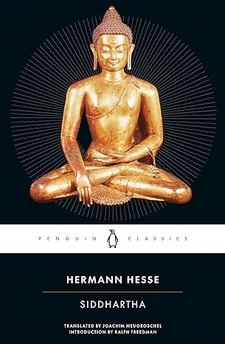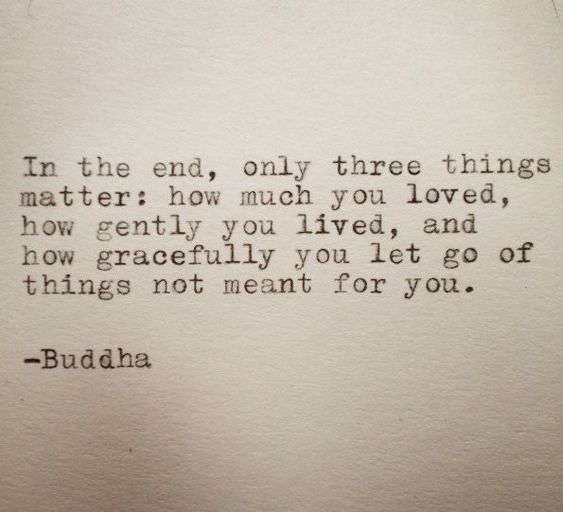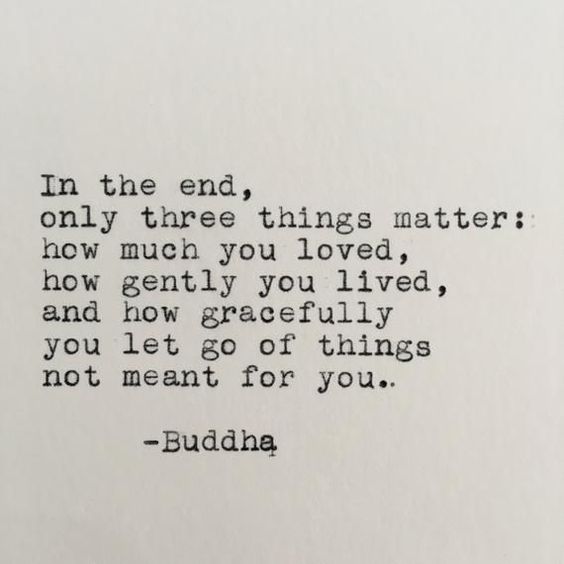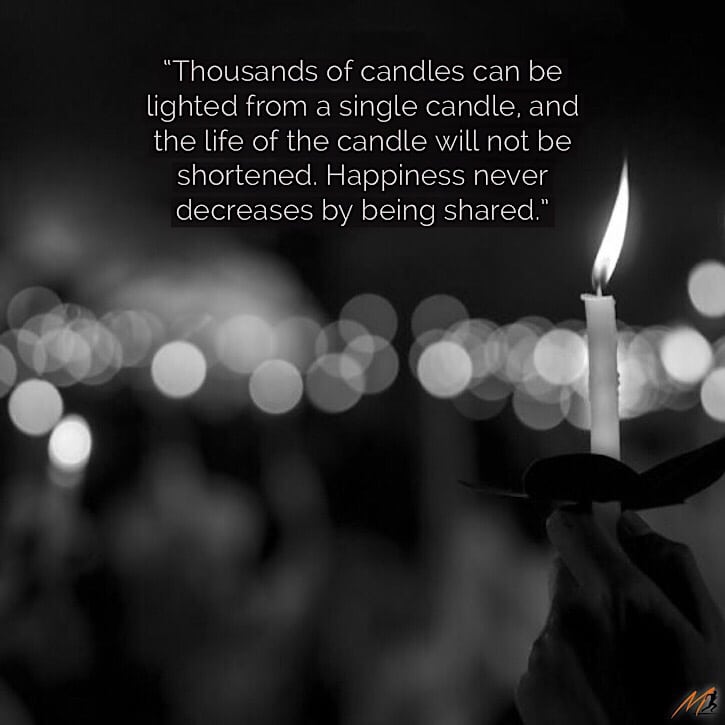“The world, my friend, is not imperfect or developing slowly toward perfection. No, the world is perfect at every moment, all sin already contains grace, all youngsters already contain oldsters, all babies contain death, all the dying contain eternal life. It is not possible for any man to see how far along another man is on his way; Buddha is waiting in robbers and dicers, the robber is waiting in the Brahmin. In deep meditation it is possible to eliminate time, to see all past, all present, all developing life as coexisting, and everything is good, everything perfect, everything Brahma.”
Hermann Hesse, Siddhartha (Page 125)
“I have never doubted you for a moment, I have never doubted for a moment that you are the Buddha, that you have attained the goal, the highest, which so many thousands of Brahmins and sons of Brahmins are journeying to reach. You have found the deliverance from death. It came to you from your own seeking, on your own path, through thinking, through meditation, through knowledge, through illumination. It did not come through a teaching! And—this is my thought, O Sublime One—no one is granted deliverance through a teaching! You cannot, O Venerable One, impart to anyone, tell anyone in words and through teachings what happened to you in the hour of your illumination. The Teaching of the illuminated Buddha contains a great deal, it teaches many how to live righteously, avoid evil. But there is one thing that the so clear, so venerable Teaching does not contain: it does not contain the secret of what the Sublime One himself has experienced, he alone among the hundreds of thousands. That is what I thought and realized when I heard the Teaching. That is why I am resuming my wandering—not to seek a different, better teaching, for I know that there is none; but to leave all teachings and all teachers and to reach my goal alone or die.”
Hermann Hesse, Siddhartha (Page 32)
“Buddha’s Way to Salvation has often been criticized and doubted, because it is thought to be wholly grounded in cognition. True, but it’s not just intellectual cognition, not just learning and knowing, but spiritual experience that can be earned only through strict discipline in a selfless life.”
Hermann Hesse, Siddhartha (Page xxviii)
Siddhartha [Book]

Book Overview: Hesse’s famous and influential novel, Siddartha, is perhaps the most important and compelling moral allegory our troubled century has produced. Integrating Eastern and Western spiritual traditions with psychoanalysis and philosophy, this strangely simple tale, written with a deep and moving empathy for humanity, has touched the lives of millions since its original publication in 1922. Set in India, Siddhartha is the story of a young Brahmin’s search for ultimate reality after meeting with the Buddha. His quest takes him from a life of decadence to asceticism, through the illusory joys of sensual love with a beautiful courtesan, and of wealth and fame, to the painful struggles with his son and the ultimate wisdom of renunciation.
“Bliss has no counterpart. It is not a duality of pleasure and pain, day and night. It is nondual, it knows no opposite. It is a transcendence. Try to be more and more in the present. Don’t move too much in imagination and memory. Whenever you find yourself wandering into memory, into imagination, bring yourself back to the present, to what you are doing, to where you are, to who you are. Pull yourself back again and again to the present. Buddha has called it recollecting oneself; in that recollection by and by you will understand what eternity is.”
Osho, Everyday Osho (Page 191)
“As irrigators lead water where they want, as archers make their arrows straight, as carpenters carve wood, the wise shape their minds.”
Buddha, via Think Like A Monk (Page 147)
“It is the power when you don’t do anything with your energy and you simply delight in its presence… A sheer delight in being full of energy… the sheer delight of a young, green tree… the sheer delight of a cloud, a white cloud wandering in the sky… the sheer delight of a lotus flower… the sheer delight of the sun coming out of the clouds… the sheer delight of being so full of energy… vibrant, alive, throbbing. When you don’t put your energy to any purpose whatsoever, then energy itself starts moving in a vertical line. If you put it to work, to some action, it moves in a horizontal line. Then you can make a big house, you can have more money, you can have more prestige, this and that. When you put energy to work, it moves in the horizontal line. When you don’t put energy to work, you simply delight in its presence, you are happy that it is there, then it moves in a vertical line. I am not saying stop all work. I am saying find a few moments for vertical movement also. Horizontal movement is okay, but not enough. It is necessary for life—but man cannot live by bread alone. You can get bread through horizontal work, but love, meditation, God, nirvana—they exist on the vertical line. So sometimes just sit, do nothing. Sitting silently, doing nothing, and something goes on growing within you. You become a reservoir, and you start throbbing with an unknown delight. When you are full of energy, you are in contact with the whole. And when you are in contact with the whole, you are full of energy.”
Buddha
“Siddhartha listened. He was now listening intently, completely absorbed, quite empty, taking in everything… He could no longer distinguish the different voices—the merry voice from the weeping voice, the childish voice from the manly voice. They all belonged to each other… They were all interwoven and interlocked, entwined in a thousand ways. And all the voices, all the goals, all the yearnings, all the sorrows, all the pleasures, all the good and evil, all of them together was the world. All of them together was the stream of events, the music of life… when he did not listen to the sorrow or laughter, when he did not bind his sound to any one particular voice and absorb it in his Self, but heard them all, the whole, the unity, then the great song of a thousand voices consisted of one word: Om—perfection.”
Hermann Hesse, Siddhartha, via Sunbeams (Page 128)
“If I am transparent enough to myself, then I can become less afraid of those hidden selves that my transparency may reveal to others. If I reveal myself without worrying about how others will respond, then some will care, though others may not. But who can love me, if no one knows me? I must risk it, or live alone. It is enough that I must die alone. I am determined to let down, whatever the risks, if it means that I may have whatever is there for me.”
Sheldon Kopp, If You Meet The Buddha On The Road, Kill Him, via Sunbeams (Page 93)
“The foot feels the foot when it feels the ground.”
Buddha, via Sunbeams (Page 69) (Read Matt’s Blog On This Quote)
“It is the same when Siddhartha has an aim, a goal. Siddhartha does nothing; he waits, he thinks, he fasts, but he goes through the affairs of the world like the stone through the water, without doing anything, without bestirring himself; he is drawn and lets himself fall.”
Hermann Hesse, Siddhartha, via Sunbeams (Page 11)
Thich Nhat Hanh Quote on the Present Moment and Appreciating the Flower When It’s Shown To You
“We can realize peace right in the present moment with our look, our smile, our words, and our actions. Peace work is not a means. Each step we make should be peace. Each step we make should be joy. Each step we make should be happiness. If we are determined, we can do it. We don’t need the future. We can smile and relax. Everything we want is right here in the present moment.”
Thich Nhat Hanh, Peace is Every Step
Beyond the Quote (238/365)
One day the Buddha held up a flower in front of an audience of 1,250 monks and nuns. He did not say anything for quite a long time. The audience was perfectly silent. Everyone seemed to be thinking hard, trying to see the meaning behind the Buddha’s gesture. Then, suddenly, the Buddha smiled.
Read More »Thich Nhat Hanh Quote on the Present Moment and Appreciating the Flower When It’s Shown To YouBuddha Quote on Life and Understanding The Difference Between “I Like You” and “I Love You.”
“When you like a flower, you just pluck it. But, when you love a flower, you water it daily. One who understands this, understands life.”
Buddha
Beyond the Quote (202/365)
“Liking” is superficial. “Loving” is deep. “Liking” is occasional and when it’s convenient. “Loving” is regular and prioritized. “Liking” keeps you the same. “Loving” helps you grow. One who understands the difference between “liking” and “loving” in life understands the difference between “existing” and “living” in life.
Read More »Buddha Quote on Life and Understanding The Difference Between “I Like You” and “I Love You.”“Happiness arrives from many directions. If you have a notion that it comes only from one direction, you will miss all of these other opportunities because you want happiness to come only from the direction you want. You say, ‘I would rather die than marry anyone but her. I would rather die than lose my job, my reputation. I cannot be happy if I don’t get that degree or that promotion or that house.’ You have put many conditions on your happiness. And then, even if you do have all your conditions met, you still won’t be happy. You will just keep creating new conditions for your happiness. You will still want the higher degree, the better job and the more beautiful house. Please remember that your notions of happiness may be very dangerous. The Buddha said happiness can only be possible in the here and now. ” ~ Thich Nhat Hanh, No Death, No Fear
The Story of Buddha and How Happiness is Not the Absence of Suffering [Excerpt]
Excerpt: The following recounts the life and story of Buddha and how he went from being a young, spoiled child to the sage we remember him as today.
Read More »The Story of Buddha and How Happiness is Not the Absence of Suffering [Excerpt]





![The Story of Buddha and How Happiness is Not the Absence of Suffering [Excerpt]](https://movemequotes.com/wp-content/uploads/2017/02/IMG_0487-930x620.jpg)